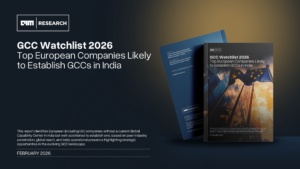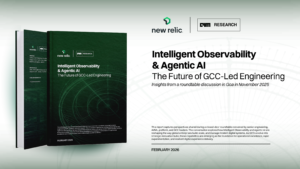For years, companies have been racing to integrate AI into their products, driven by the promise of enhanced capabilities and streamlined processes. Yet, beneath the excitement lies a challenge that few have been able to solve—how do you really know if your AI will work as expected once it’s out in the world?
This is the problem that Vikram Chatterji, co-founder and CEO of Galileo, set out to solve when he started the company three years ago. “If you don’t solve for this, you’re stuck in almost-production land,” Chatterji says, highlighting the significant barrier that many enterprises face in taking their AI from testing to full deployment. Galileo’s mission has been clear from the start: to provide a scalable, reliable way for enterprises to evaluate their AI systems, ensuring they’re safe, effective, and trustworthy.
Fast forward to today, Galileo’s innovative approach to solving this problem has attracted significant attention. The company just raised $45 million in Series B funding, led by Scale Venture Partners, with participation from Premji Invest, Databricks Ventures, ServiceNow Ventures, and other strategic investors. This brings their total funding to $68 million, positioning Galileo as a leader in AI evaluation and observability for enterprises.
The timing of this investment is no coincidence. Galileo has seen an astounding 834% revenue growth since the beginning of 2024, quadrupling its number of enterprise customers and signing on six Fortune 50 companies, including giants like Comcast and Twilio. As AI adoption skyrockets across industries, the demand for Galileo’s Evaluation Intelligence platform has followed suit.
Galileo’s platform offers AI teams a comprehensive solution to evaluate, monitor, and protect their AI systems. Traditional methods of evaluation, like using humans or language models to judge AI performance, are slow, expensive, and don’t scale. But Galileo’s end-to-end platform embeds research-backed evaluation metrics across the entire AI workflow, making it easier for teams to test, deploy, and monitor their AI systems in real-time.
“Traditional evaluation methods fall short for enterprise use cases,” said Jim Nottingham, Senior Vice President of Advanced Compute Solutions at HP Inc. “Galileo’s rapid innovation and focus on overcoming the biggest evaluation hurdles— from accuracy to bias—provides a complete view of how GenAI apps are performing, which is why they’ve become a critical part of our Z by HP AI Studio.”
The rapid growth of generative AI has brought about new challenges, especially in ensuring that AI models are reliable and free from errors like hallucination—AI-speak for making up incorrect information—or privacy violations. Galileo’s platform addresses these concerns, giving enterprises the tools they need to build trustworthy AI applications. The company works with major clients like Hewlett Packard, Comcast, and Twilio to ensure that their AI systems are robust, reliable, and ready for real-world deployment.
In June, Galileo unveiled Luna, a groundbreaking suite of AI models designed to evaluate the outputs of large language models like GPT-3. Dubbed Evaluation Foundation Models (EFMs), these specialized models are fine-tuned to detect issues such as hallucinations, toxic language, data leaks, and malicious prompts. “For GenAI to achieve mass adoption, it’s crucial that enterprises can evaluate hundreds of thousands of AI responses for hallucinations, toxicity, security risk, and more, in real time,” said Vikram Chatterji, Co-Founder and CEO of Galileo. With Luna, Galileo claims to deliver evaluations 97% cheaper, 11x faster, and 18% more accurately than traditional methods, setting new industry benchmarks.
The funding round also signals a broader trend in the AI space. As enterprises increasingly adopt generative AI, the need for robust evaluation tools is becoming more critical. Gartner projects that by 2026, over 80% of enterprises will have integrated generative AI into their operations. With AI becoming more accessible to millions of developers, the challenge of evaluating these systems is only intensifying, and Galileo is uniquely positioned to lead the charge.
“Evaluations have become a critical component of the AI stack,” said Andrew Ferguson, VP at Databricks Ventures. “Galileo has established itself as a leader with one of the most mature products and businesses in this space. We look forward to collaborating further to accelerate enterprise adoption of generative AI.”
With the new funding, Galileo plans to scale its go-to-market strategy, expand its product development efforts, and double down on AI evaluation research. The company’s ultimate goal is to help AI developers build systems that can be trusted not just in development but in production as well.
“We started Galileo to solve AI’s measurement problem, specifically with a focus on language models,” Chatterji says. “Our unique research-backed approach and carefully crafted UX have seen massive adoption across enterprises to unblock and grow generative AI application development. This new funding will allow us to greatly accelerate our development to meet the increasing demand.”
As generative AI continues to reshape industries, the importance of reliable evaluation methods will only grow. Galileo’s role in this ecosystem is clear: helping enterprises take AI from concept to full-scale deployment with confidence. The company isn’t just solving a technical problem; it’s unlocking the true potential of AI in the enterprise world.
Chatterji and his co-founders, Yash Sheth and Atindriyo Sanyal, have their sights set on the future, backed by a talented team and a cutting-edge platform. And as enterprises continue to race toward integrating AI, Galileo stands ready to ensure their systems are not just powerful but also trustworthy.
“AI models will soon be seen as brand ambassadors,” said Andy Vitus, Partner at Scale Venture Partners. “In the same way employees have managers, these AI agents need oversight.” With Galileo leading the charge in AI evaluation, that oversight is now within reach.





